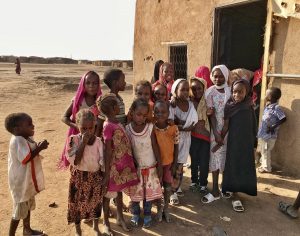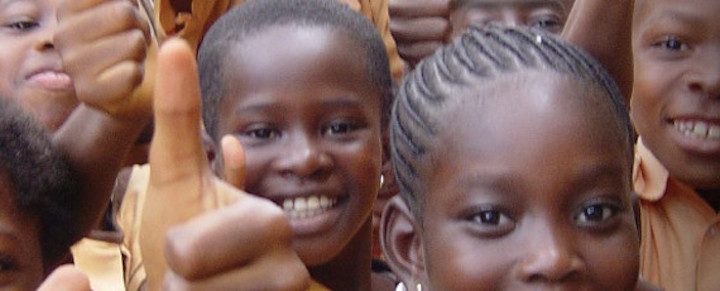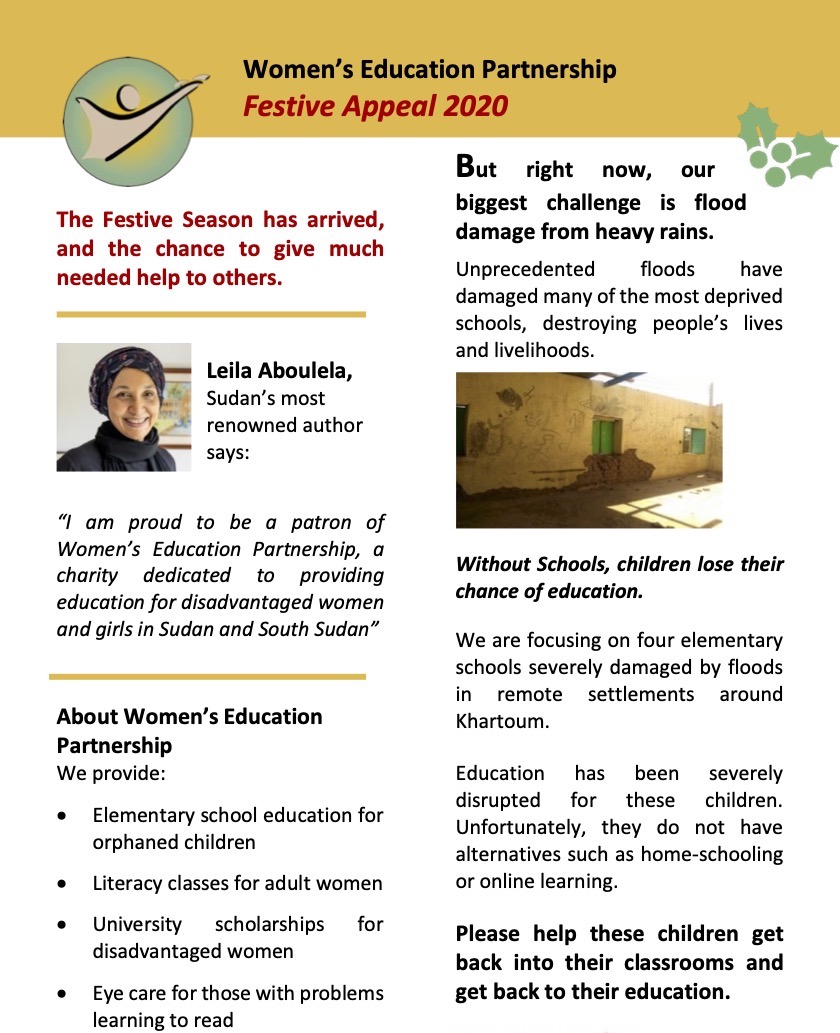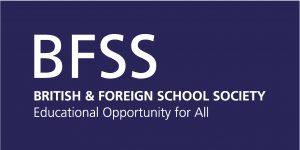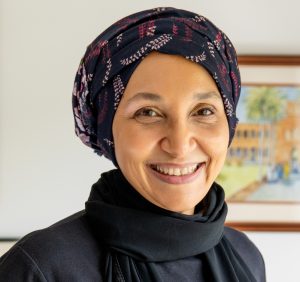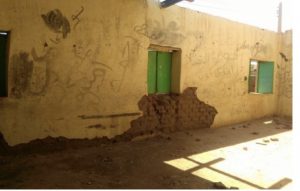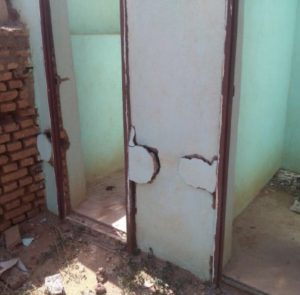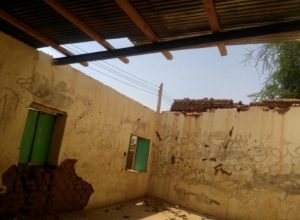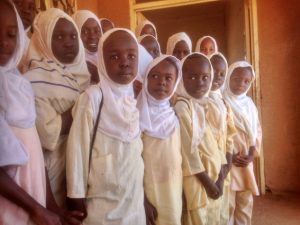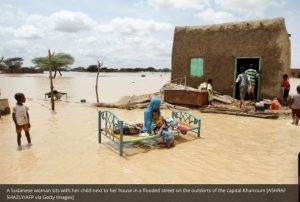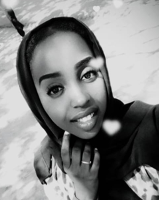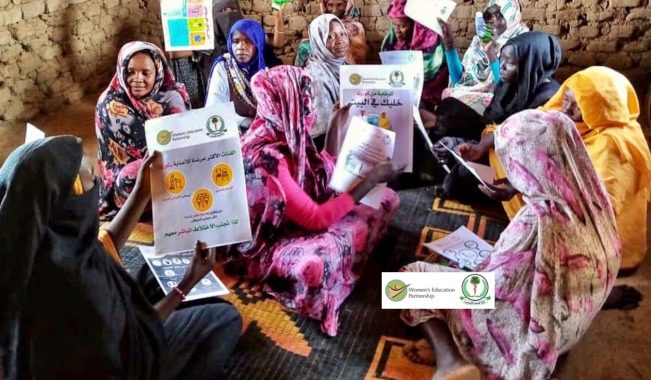Women’s Education Partnership is very conscious of what a challenging time we all face – our learners, donors and supporters, and our small staff team in the Sudan. The Covid-19 virus pandemic has turned our world upside down. In common with many other countries, Sudan has now adopted a policy of ‘stay at home’ to limit the spread of the virus. Sudan is some weeks behind the UK on the trajectory of the virus, just at the beginning of the outbreak. It is almost certainly at greater risk because its health system is less developed and less well resourced.
We hope and pray that the outbreak will be successfully contained in Sudan and South Sudan, and we are very concerned about the safety of our Sudanese staff and all our contacts there.
What is our response?
In Sudan the universities, schools and our WEP literacy circles have all been closed down for the present because of the pandemic. We have instructed our small in-country staff team in Khartoum to work from home and we have equipped them with laptops to make it possible for them to communicate online. Our staff have also advised our literacy facilitators, our literacy learners and our undergraduate students at university to stay at home.
We hope that when the outbreak is over, we will be able to return to normal and provide our services to learners as before.
We are also pleased to be able to contribute to a ‘national response’ to the crisis, at the invitation of the Humanitarian Aid Commission. Our local staff are helping extend awareness of the virus threat and to facilitate distribution of official awareness literature to our literacy learners and their families in deprived areas around Khartoum.
We aim to keep all our supporters informed of development through posts on this website and through our blog at: https://womensliteracysudan.blog/
South Sudan
South Sudan faces a similarly uncertain future with the advent of Covid-19. As in the north, it has declared a lock down of schools and other institutions. Our activities in the South with the Kimu Integrated Development Organisation are temporarily suspended, and we are aiming to begin again once the crisis is past.
